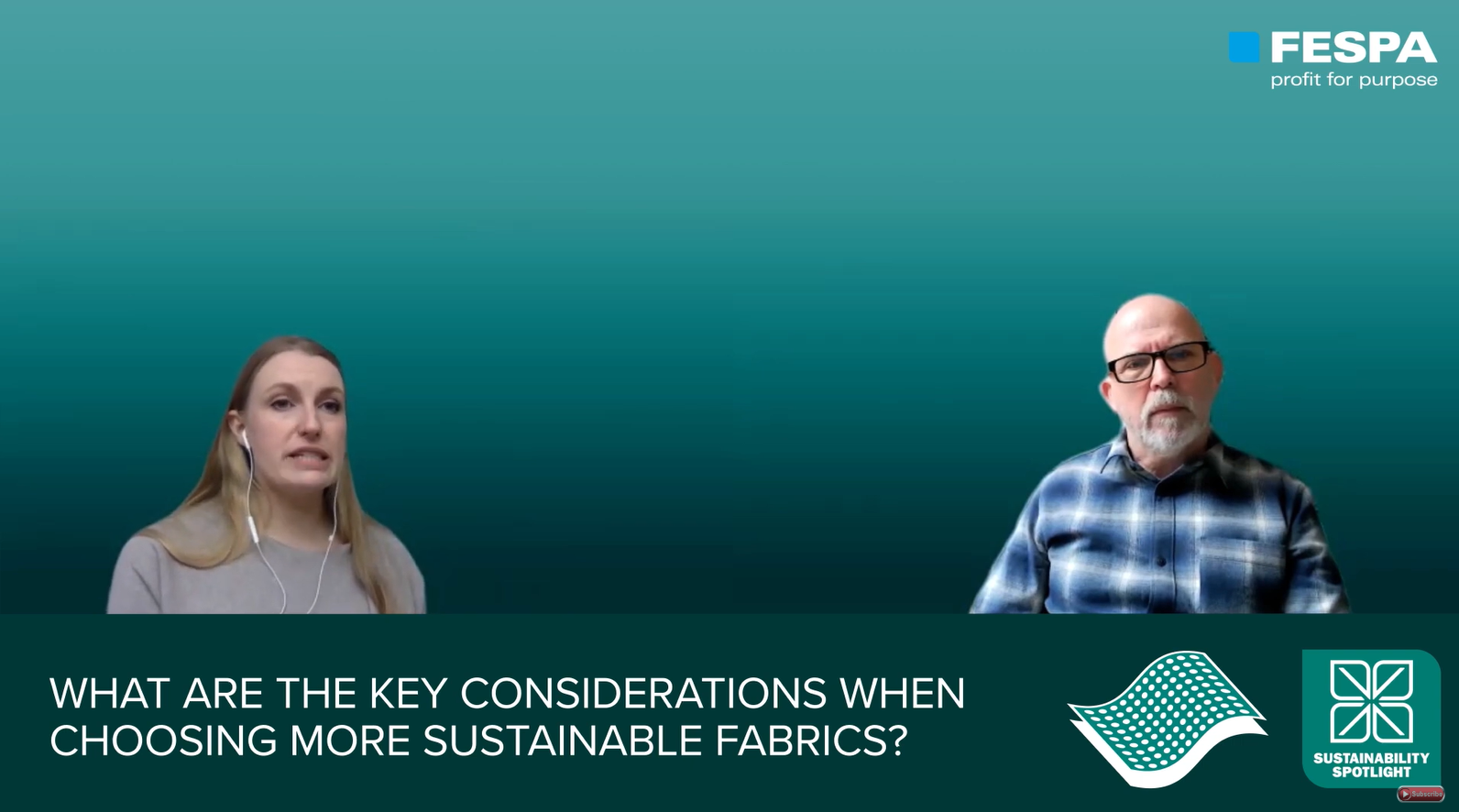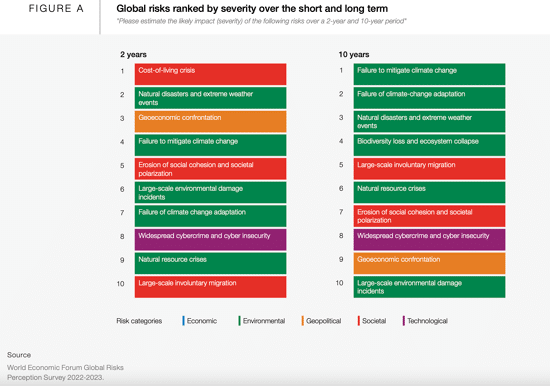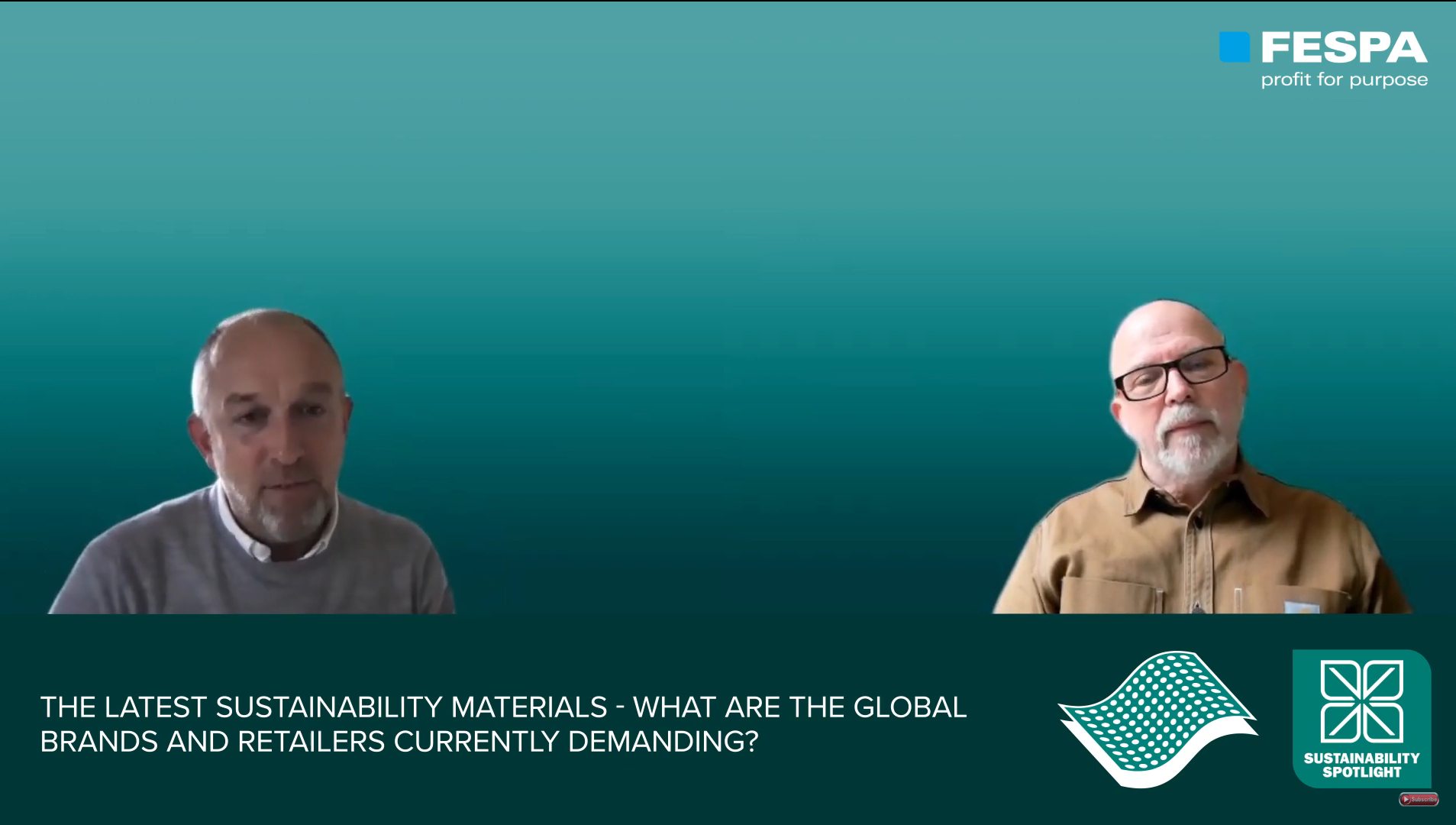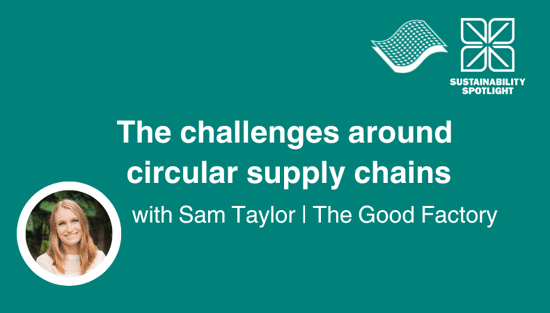
Sustainability Spotlight
Sustainability Spotlight offers informative and actionable advice around environmental best practice to allow businesses to make more sustainable and environmentally friendly choices for their business. FESPA speaks to industry experts about sustainability where you can discover business opportunities to reduce, reuse and recycle materials and improve your knowledge.
Materials
FESPA achieves ISO certification for Sustainable Event Management
FESPA is pleased to announce that it has achieved ISO 20121:2012 certification for Sustainable Event Management, an internationally recognised standard for implementing an effective and sustainable event management system.

.png?width=550)
How to make effective sustainable changes for your business
FESPA has created Sustainability Spotlight to offer informative and actionable advice around environmental best practice to allow businesses to make more sustainable and environmentally friendly choices for their business. This article offers various guidelines for businesses to help them make sustainable business changes, access the full guidelines below.

How to start your journey in sustainability
Laurel Brunner shares some basic steps of what printers can do to begin their journey in sustainability. These steps focus on conserving resources and minimising waste.

Mimaki Engineering launches eco-friendly carbon ink cartridges to worldwide market
Mimaki launches eco-friendly carton ink cartridges to the global printing industry, significantly reducing plastic usage and improving recyclability This latest solution is another initiative by the company to support printers in reducing their environmental impact

Heidelberg joins the United Nations Global Compact
Laurel Brunner shares the importance of the United Nations Global Compact. Members include Mercedes-Benz, Pearson and Unilever with Heidelberg now joining as a member.
_5.png?width=550)
FESPA UK partners with industry suppliers to improve print media recycling
FESPA UK add Self-adhesive Plastics and Siliconised backing papers to their Waste Management Accreditation Scheme and welcomes support from key industry suppliers.

What are the best sustainable fibre types for use in printed sportswear?
Sam Taylor from The Good Factory discusses the latest and most suitable fibre types that can be used in printed sportswear such as bio plastics. Sam also discusses whether using recycled PET bottles for clothing is greenwashing or not.

The business opportunity of more sustainable textiles
Giorgio Volpi, Head of Marketing at Berger Textiles discusses the various opportunities for businesses regarding sustainable textiles.

Sustainable success with interior display print applications
While the interior print market has been a growth area for several years, those in this sector are now seeing an increase in demand for sustainable work. Rob Fletcher takes a look at some recent examples of planet friendly applications and analyses the materials used in these projects.

FESPA Print Census: rising sustainability demands
Laurel Brunner discusses the importance of Sustainability in the FESPA Print Census. Respondents were all in agreement that there is a rise in sustainability demands. The FESPA Print Census provides a detail account of the latest industry trends for FESPA members.

The challenge in large format printing: cheap vs sustainable products
Sonja Angerer shares how print buyers want to buy cheap but sustainable products without the additional cost. Is this really true and what does this mean for the future of large format printing?

Xeikon and Sappi collaboration
Sappi, the world’s leading maker of flexible packaging papers and Xeikon, the top webfed digital press developer and manufacturer, are working together on a new packaging product. The paper-based material and colorant is expected to save resources while ensuring high print image quality, recyclability and food safety.

The use of mercury lamps on the decrease
Laurel Brunner shares the ongoing trend of mercury lamps being less and less used across the printing industry. Governments and bodies around the world are now banning the use of mercury in products by the end of 2025.
_1.png?width=550)
Circular Economy, Sustainable Materials and Carbon FootPrinting
Sustainability is a journey for all businesses and it is important for businesses to take into use sustainable materials, be aware of the UN SDGs, aim to become more circular and to ensure their business is carbon footprinting.
.png?width=550)
What are the key considerations when choosing more sustainable fabrics?
FESPA’s Head of Associations and Technical Lead speaks to Sam Taylor, Founder of The Good Factory about the key factors to consider when choosing sustainable fabrics. Sam describes available tools that make sourcing sustainable fabrics easier and how Life Cycle Assessments contribute to better fabric selection.

What changes can we expect as textile supply chains develop?
Sam Taylor, the founder at The Good Factory discusses the expected changes print businesses can expect as textile supply chains evolve and develop.
.jpg?width=550)
Are bio-based synthetics a solution to the climate crisis?
Sam Taylor, the founder at The Good Factory discusses the importance for the textile industry to reduce their GHG emissions and how implementing and scaling bio-based synthetics could provide a solutions.
.png?width=550)
The latest sustainability materials – what are the global brands and retailers currently demanding?
FESPA’s Head of Associations and Technical Lead speaks to Steve Lister, Sustainability Director Global Brands & Retailers from Stevelister.com. Steve is also the Head of Sustainability at POPAI UK & Ireland. In this video, Steve discusses how to determine which materials are truly sustainable and the type of materials that global brands and retailers are demanding from the print and packaging sectors. Steve also describes the key opportunities for sustainable materials.

The challenges around circular supply chains
FESPA’s Online Marketing Manager, Kelley-Ann Young Kong speaks to Sam Taylor, the founder of The Good Factory about the challenges that need to be overcome by businesses when establishing supply chains. Sam shares what makes a supply chain circular and the trend towards using smart manufacturing.